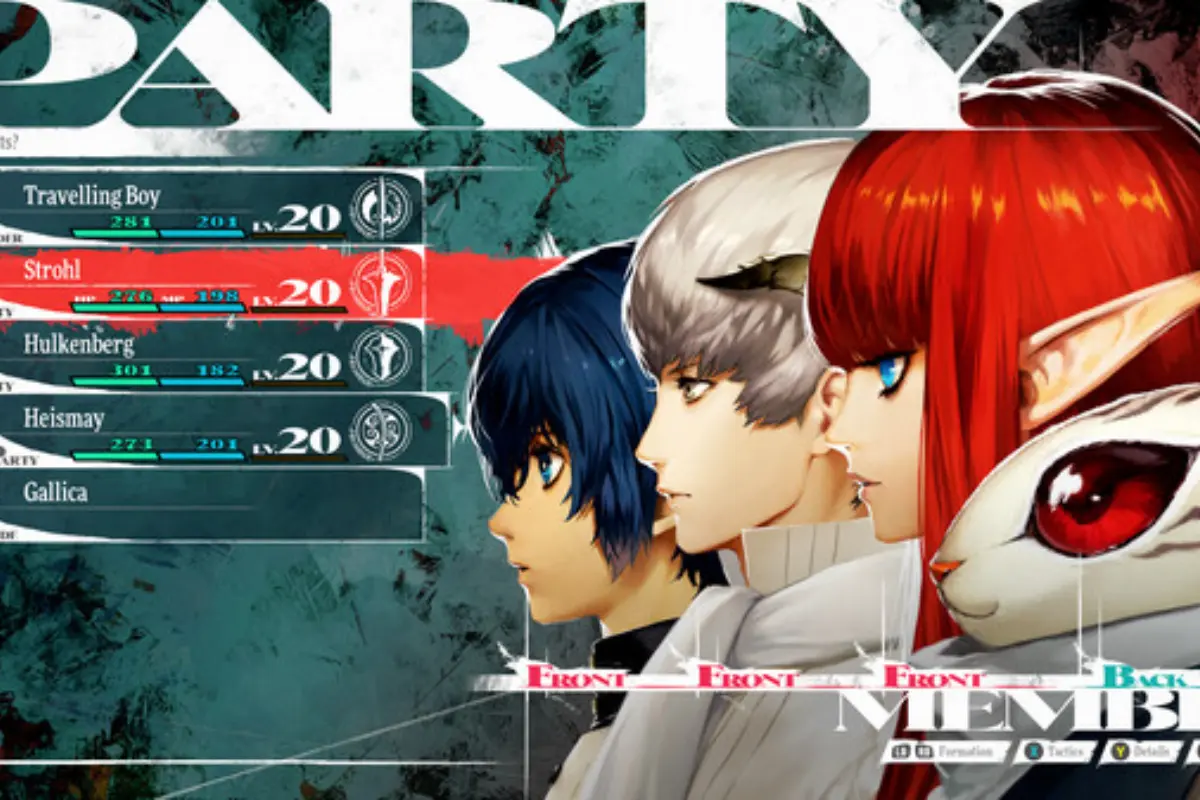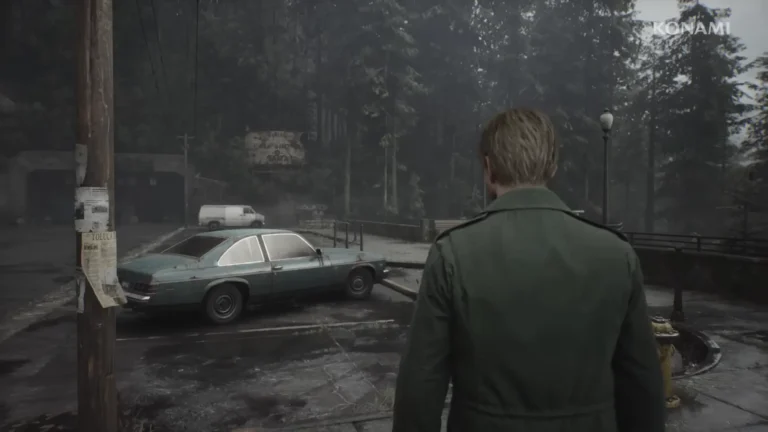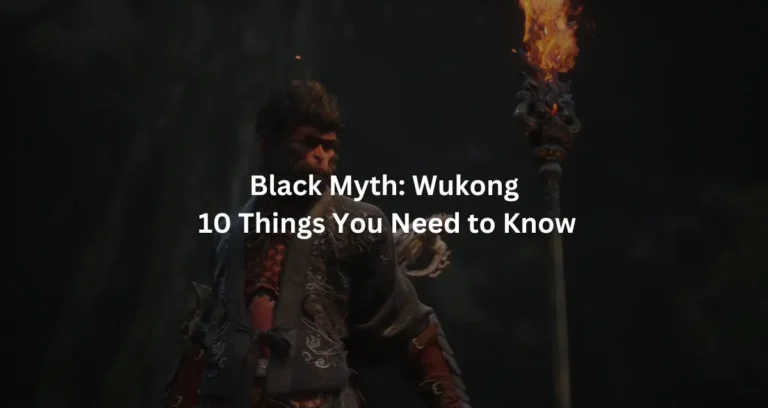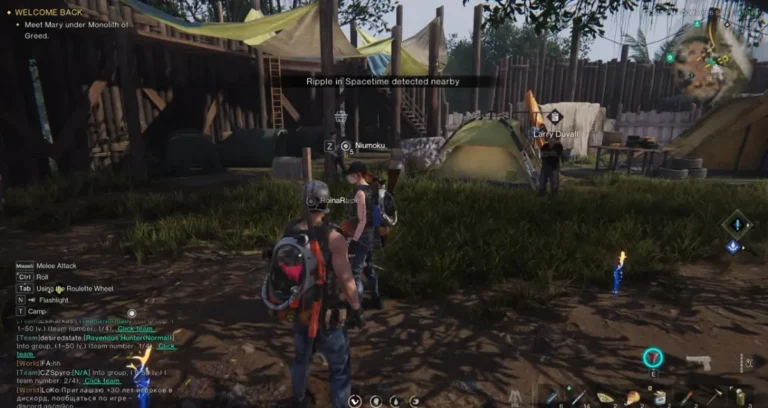“Metaphor: ReFantazio” – A Fantasy Masterpiece with Persona Roots
In the world of JRPGs, fans have long been waiting for the next groundbreaking title. Metaphor: ReFantazio is poised to deliver just that, and in this post, we dive deep into what makes this game a standout. Developed by some of the key figures behind Persona 5, including director Katsura Hashino, Metaphor: ReFantazio promises to bring a whole new universe to life, while still retaining the essence that made Persona so beloved.
Here’s everything you need to know about Metaphor: ReFantazio, including its gameplay, story, and why it’s worth your time—whether you’re a die-hard JRPG fan or new to the genre.
A New World, A New Fantasy
After the success of Persona 5, fans might have expected the same team to stick with the familiar world of modern-day Tokyo, school life, and supernatural powers. However, Metaphor: ReFantazio breaks from the Persona universe, diving into a completely new fantasy world filled with knights, mages, kings, dragons, and fairies. It’s a world rich with lore, political intrigue, and a heavy focus on sociopolitical dynamics among its inhabitants.
Players will navigate through this fantasy realm as a hero of their own creation. The story begins with a mission to save a cursed prince and quickly expands into a much larger narrative involving the fate of kingdoms, the struggle for power, and the looming threat of a monstrous force.
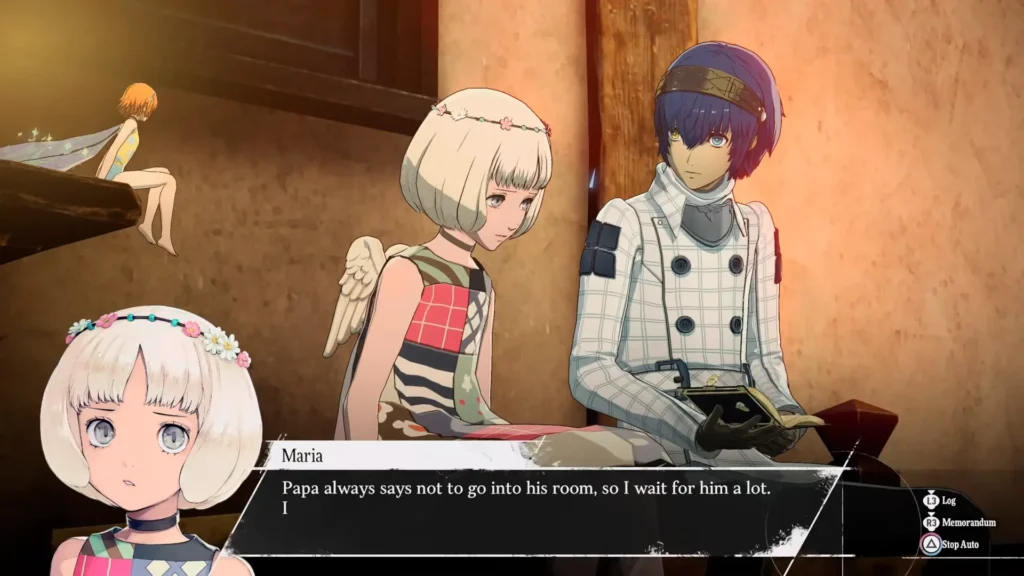
The different clans or races within the game world, such as beings with horns, elf ears, tails, and unique eyes, create a truly diverse and complex society. These characters, deeply integrated into the game’s story, are not just visually distinct but also play into the larger themes of class distinctions, racial tensions, and societal division. As with Persona, the world-building goes beyond surface level, and these elements influence both the narrative and gameplay.
Storytelling with Depth
One of the most striking things about Metaphor: ReFantazio is how the game doesn’t shy away from tackling larger topics, such as politics, class divides, and even religion. The team behind the game has clearly aimed to craft a narrative with depth and weight, and it shows. While the fantasy setting feels familiar in some ways, the writing is sharp, and the game’s universe feels alive with its own history and social issues.
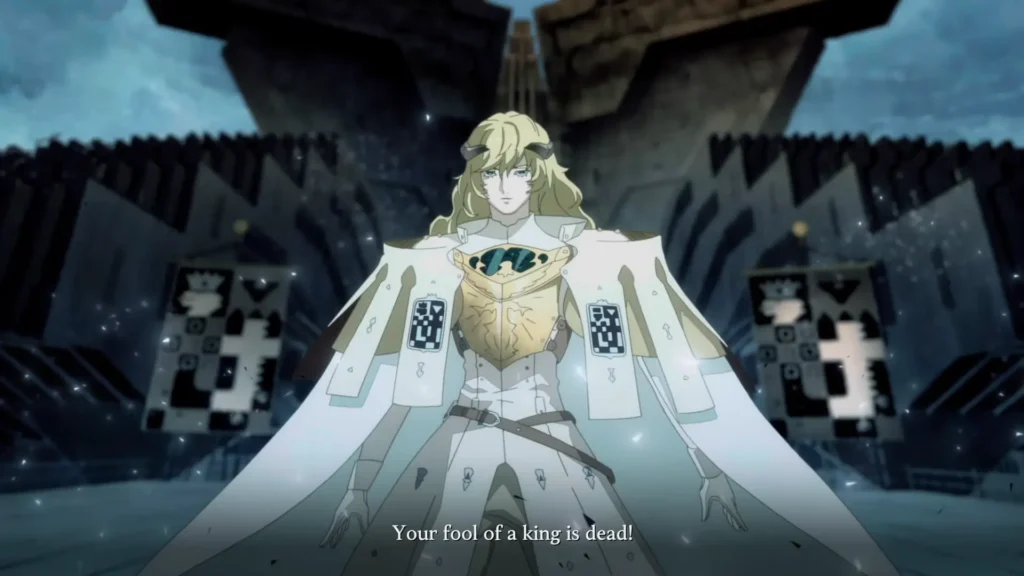
For fans of Persona, this will feel like familiar territory—complex, layered storytelling paired with strong character development. The world may be fantastical, but the emotional core and moral complexities are very much grounded in reality.
Gameplay Mechanics: Balancing Old and New
Much like Persona, time management plays a key role in Metaphor: ReFantazio. Players will need to balance their day-to-day tasks with the demands of the main quest. This includes deciding how to spend time: Do you jump into dungeons to progress the story, or spend time with townsfolk, completing side quests to grow stronger?
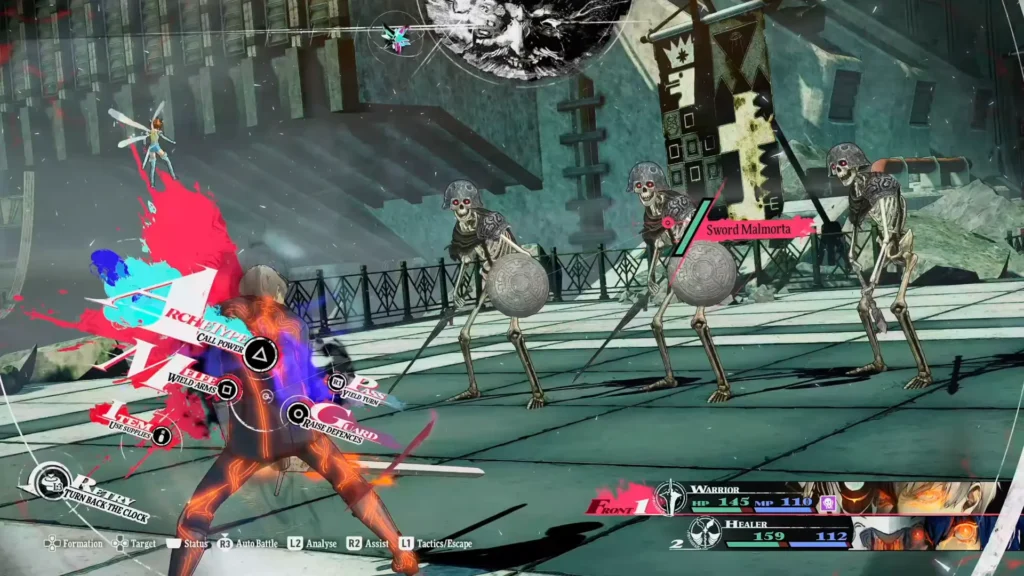
This strategic approach to time management is what helps Metaphor stand out. Each decision carries weight, as the game tracks your progress against a calendar system. You’ll have to make choices on how to allocate your time wisely, be it grinding levels, strengthening relationships with party members, or pursuing quests for rare equipment and abilities.
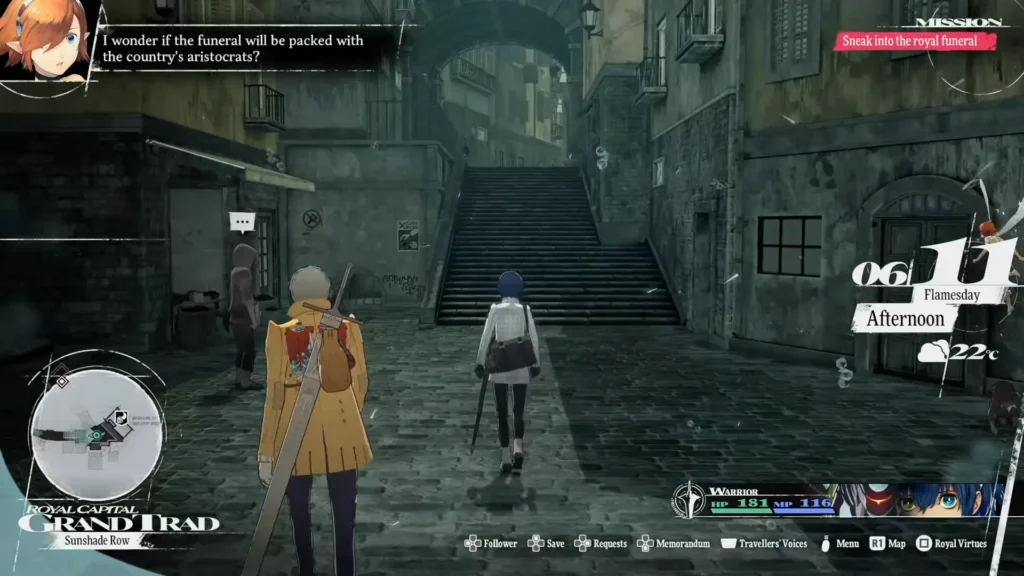
The combat system is traditional JRPG fare with turn-based battles but introduces several new twists. The game features a job system of sorts, with characters able to harness the power of ancient archetypes. These archetypes, representing different classes like knights, mages, and warriors, offer unique abilities and advantages in battle. You’ll need to constantly experiment with these archetypes, as they can be swapped and leveled up. Additionally, the archetypes aren’t just for combat—they affect the characters’ gear and even influence interactions outside of battle.
The game’s synergy system allows for combo attacks when you have characters of similar archetypes working together, adding an extra layer of strategy to how you approach each battle.
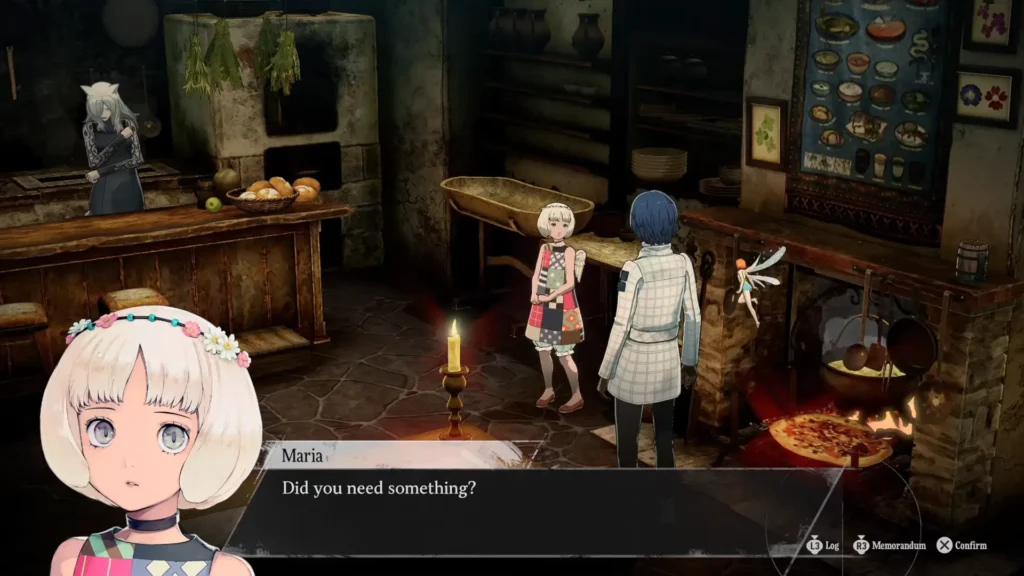
Rich Aesthetics and Style
If there’s one thing that Metaphor: ReFantazio excels at, it’s style. Much like Persona 5, Metaphor has an incredibly distinct visual flair. The art direction is top-notch, with gorgeously designed environments and characters that feel larger than life. From the menus to the soundtrack, there’s a sense of polish and creativity that fans of the Persona series will immediately recognize.
The game is filled with imaginative monster designs and fantastical settings that evoke wonder and curiosity. Part of the fun comes from discovering these strange, otherworldly creatures and battling them in intense, turn-based combat. However, it should be noted that on PC, some players have reported screen-tearing issues, which could be a minor distraction from the game’s otherwise beautiful presentation.
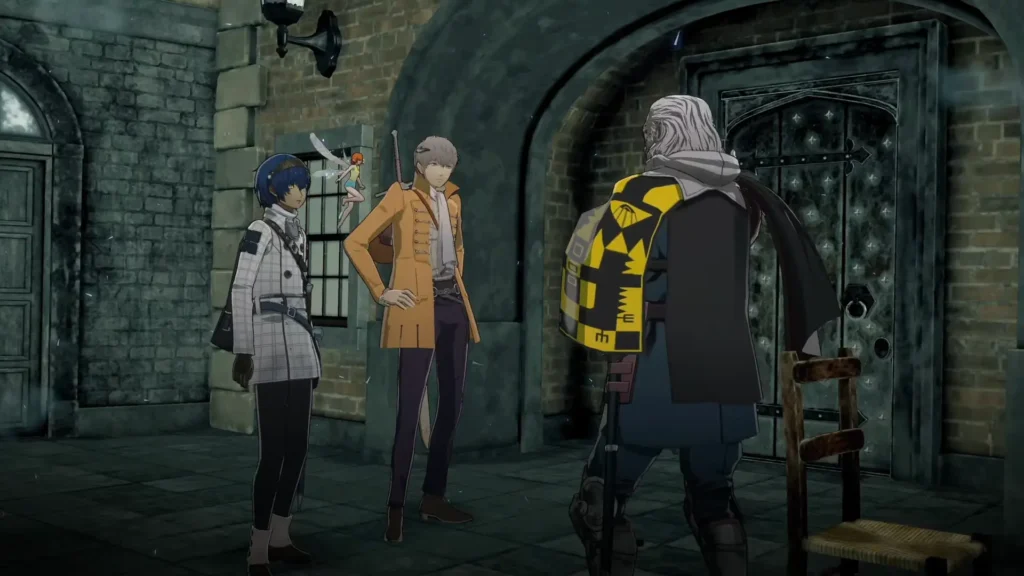
Character Development and Social Aspects
Much like its predecessor in Persona, Metaphor: ReFantazio excels at giving players a cast of well-developed characters. Each member of your party brings a unique personality, backstory, and abilities to the table. These characters aren’t just silent followers—they actively participate in the story and can be influenced by your actions.
Building relationships and learning about your party members plays a crucial role in unlocking new abilities and archetypes. This mechanic encourages exploration and dialogue, as spending time with characters often results in unlocking powerful new abilities or uncovering hidden lore about the game world.
The characters’ distinct personalities and the way they interact with each other make for engaging dynamics. The game’s writing ensures that you’ll get invested in your party, making each victory in battle feel more satisfying, and each character’s development feel more meaningful.
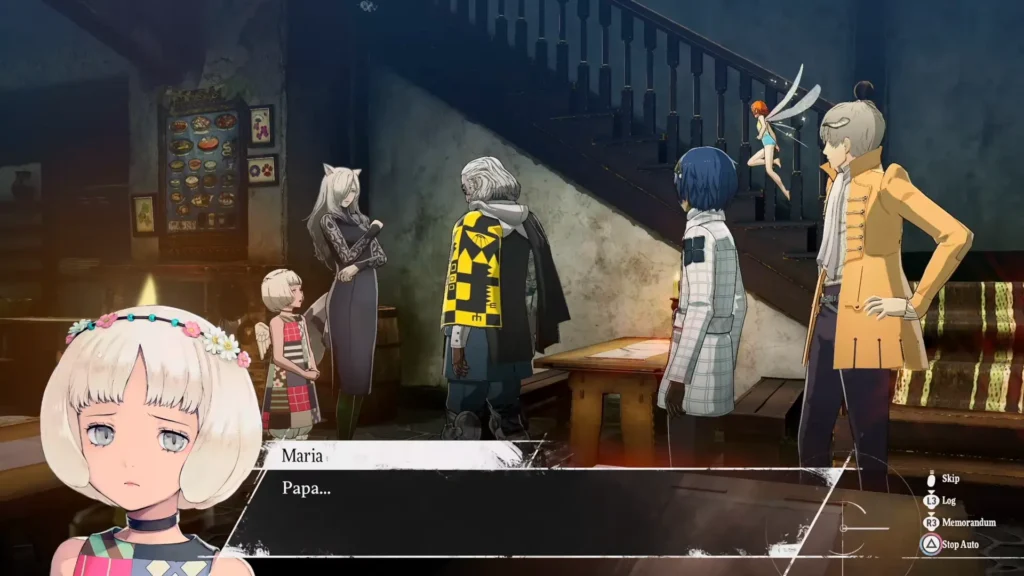
Room for Improvement
While there’s a lot to love, Metaphor: ReFantazio isn’t without its faults. The prologue section, which lasts for the first few hours, can feel a bit slow and overly tutorial-heavy. This is typical for many JRPGs, but it may deter players who prefer faster pacing.
Additionally, the game’s character Gala can be a bit grating at times, constantly offering tips and reminders that can feel like overkill. It’s reminiscent of Navi from Ocarina of Time, constantly popping up with suggestions and alerts that can sometimes break the immersion.
Conclusion: A Promising Start for a New Fantasy Series
Metaphor: ReFantazio manages to blend the best elements of Persona’s storytelling and character development with a rich, fantasy world filled with political intrigue, magic, and deep social commentary. While the game has some early pacing issues, once the story opens up, it offers a vast and rewarding experience that will appeal to both veterans of the genre and newcomers.
If you’re looking for a JRPG with complex mechanics, a rich story, and a world brimming with creativity, Metaphor: ReFantazio is definitely worth checking out. Its blend of fantasy, turn-based combat, and social mechanics gives it a distinct feel that sets it apart from other games in the genre.
For fans of Persona and newcomers alike, this is a game that promises hours of compelling gameplay and a story that will stick with you long after the credits roll.
Final Thoughts
Whether you’ve played the demo or are waiting to jump into the full game, Metaphor: ReFantazio is shaping up to be one of the most exciting releases in the JRPG space this year. With its stylish aesthetic, deep mechanics, and thought-provoking story, it’s a game that’s hard to ignore.
So, if you’re ready for an adventure filled with magic, political intrigue, and unforgettable characters, Metaphor: ReFantazio should be on your radar.

